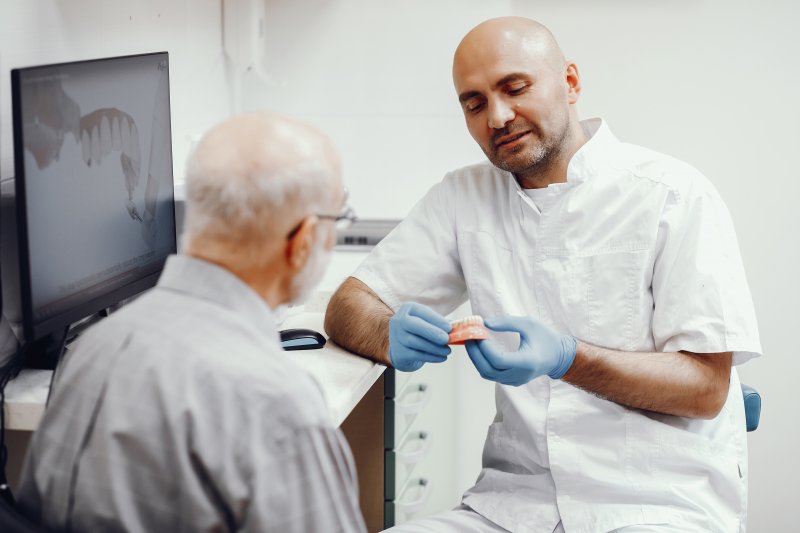
When comparing the benefits of permanent prosthetics to traditional dentures, you can’t help but be excited by the idea of enjoying a smile that is fully functional and can last 30 years or more. But are you a qualified dental implant candidate? The only way to know is to schedule a consultation with your local periodontist. But before your appointment, here are a few factors you can expect them to consider when determining how you will move forward with treatment.
Your Gums Are Healthy
Gum disease may be common among most adults in the United States, but if you’re missing multiple teeth as a result, you’ll be required to undergo periodontal therapy beforehand. Once bacteria and plaque begin to attack the gum tissue, it causes an infection, which can negatively affect the lifespan of your dental implants.
Bone and tooth loss are common when untreated gum disease occurs (also referred to as periodontitis). Should this happen, your prosthetics can fail, resulting in more time and money being spent to fix the problem.
Taking care of your gum health at the start of treatment will put you in a better position to undergo successful dental implant placement.
You Possess Enough Jawbone Density
The jawbone is considered the foundation for your permanent prosthetics. Because they must fuse with it to provide the necessary support for the customized restoration (i.e., crown, bridge, denture), your bone must be dense enough.
Your periodontist will examine this part of your facial structure using advanced dental technology. Should you lack the density required, a bone graft may be necessary. While this process can add more time to the overall process, it is essential for the success of your implant treatment.
You Are Committed to Taking Care of Your New Smile
No matter the reason for your lost teeth, if you are considering dental implants to replace them, you’ll need to be committed to practicing good oral hygiene habits at home. Just because your new teeth will be artificial doesn’t mean you can skip your morning and nighttime routines.
Brushing, flossing, and rinsing are necessary if you want to avoid decay on your natural teeth as well as gum disease. Also, you must continue to see your dentist every six months for regular checkups and cleanings to ensure no problems are developing.
Your investment in dental implants is a big one, so before you move forward, allow your periodontist to make sure you’re in the best possible position to receive these permanent prosthetics. Only then can you expect to enjoy a longer-lasting smile.
About the Author
Dr. Matthew Nawrocki is a periodontist who is well-versed in using dental implants to replace missing teeth. When patients arrive looking for a permanent solution to tooth loss, he and the team at Jacksonville Dental Specialists can create a personalized treatment plan that details the process and its eventual results. If you are interested in learning whether you’re a candidate for dental implants, contact us at (904) 683-4781.
